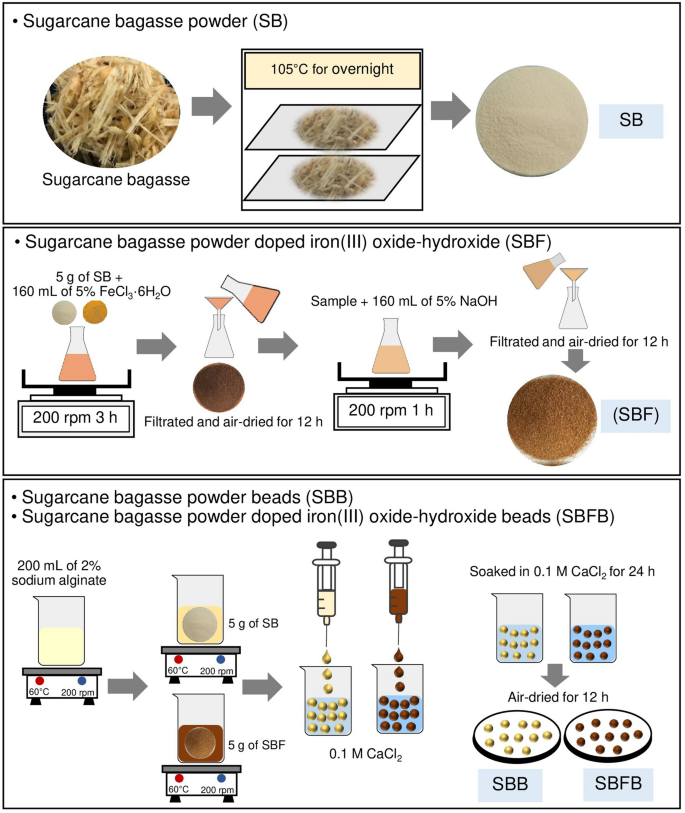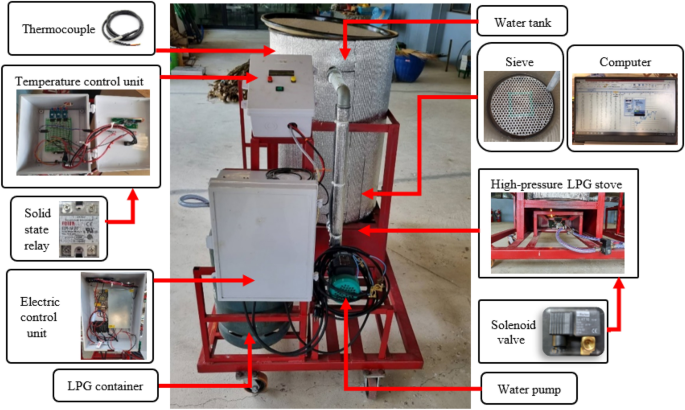Are Products From Sugarcane Truly Biodegradable?
Are Products From Sugarcane Truly Biodegradable?
Blog Article
How Products From Sugarcane Are Reinventing the Eco-Friendly Market
Products stemmed from sugarcane are making significant strides in the environment-friendly market. These innovations provide sustainable choices across various sectors, from eco-friendly packaging to renewable energy resources. As consumer need for ecologically mindful options expands, sugarcane's adaptability is becoming progressively obvious. This shift not only advertises sustainability yet additionally introduces economic chances. The complete level of sugarcane's effect on the market stays to be checked out.

The Increase of Sugarcane in Sustainable Manufacturing
As sectors increasingly prioritize sustainability, sugarcane has become an essential component in eco-friendly production processes. This versatile crop is being used not just for its sweetener but likewise for its fibrous byproducts, which offer as eco-friendly sources in different applications. Business are utilizing sugarcane-derived materials to develop bio-based options to conventional plastics, fabrics, and even biofuels. The growing of sugarcane also uses significant advantages, as it can be grown in regions that need much less power and water contrasted to other crops.Furthermore, the carbon sequestration abilities of sugarcane contribute to reducing greenhouse gas discharges, making it a desirable option for environmentally conscious producers. As customers demand greener items, the rise of sugarcane in lasting manufacturing lines up with worldwide initiatives to minimize climate change and advertise a circular economy. This change not just supports technology yet additionally cultivates a much more sustainable approach to production across numerous markets.
Naturally degradable Product Packaging: A Sweet Solution
Biodegradable product packaging made from sugarcane uses a sustainable alternative to typical products, highlighting its ecological benefits. As sectors significantly take on compostable choices, the shift towards environmentally friendly services comes to be a lot more obvious. This pattern not only addresses waste management concerns however additionally reflects an expanding consumer demand for sustainable methods.
Lasting Material Advantages
The change towards sustainable products is transforming product packaging services, with sugarcane-derived biodegradable options emerging as a leading contender. These materials supply many ecological advantages, primarily through their capacity to decompose naturally, reducing garbage dump waste. Unlike typical plastics, which can take centuries to break down, sugarcane product packaging can return to the planet without leaving harmful deposits. Additionally, the farming of sugarcane is typically extra sustainable, needing much less water and fewer chemicals contrasted to petroleum-based materials. This not only reduces the carbon footprint associated with manufacturing yet likewise supports local economies that rely upon sugarcane farming. As services significantly prioritize green practices, sugarcane-derived packaging stands for a responsible and sensible option for reducing ecological influence while meeting consumer demand for lasting alternatives.
Compostable vs. Traditional Choices
While typical product packaging options have controlled the market for years, compostable choices stemmed from sugarcane are getting grip as a more sustainable option. Typical packaging products, such as plastics, contribute substantially to ecological contamination and land fill overflow, typically taking centuries to break down. On the other hand, sugarcane-based compostable packaging can damage down in a matter of months when disposed of effectively. This rapid decomposition not only minimizes waste yet also improves dirt, promoting a healthier environment. Products From Sugarcane. In addition, compostable options lessen dependence on nonrenewable fuel sources, as they are made from eco-friendly sources. As consumers become significantly eco aware, the change towards compostable product packaging stands for a crucial step in reducing the ecological footprint of day-to-day products
Industry Fostering Trends
As companies progressively prioritize sustainability, the fostering of naturally degradable product packaging services is on the rise, particularly those acquired from sugarcane. This pattern shows a broader adjustment in consumer choices in the direction of eco-friendly items, prompting businesses to look for choices to typical plastics. Sugarcane-based packaging not only minimizes dependence on nonrenewable fuel sources however additionally offers a renewable source that can decompose normally, minimizing land fill effect. Market leaders across fields, including food and drink, cosmetics, and shopping, are integrating these options into their operations. As understanding of ecological problems expands, governing stress and consumer need are anticipated to increase the change towards these sustainable alternatives. Ultimately, the shift to sugarcane-derived naturally degradable packaging stands for a substantial step in the direction of an extra lasting future.
Eco-Friendly Textiles: From Area to Fashion
Green textiles, progressively preferred for their sustainable characteristics, are transforming the garment industry. Originated from sustainable sources like sugarcane, these products provide an ingenious choice to standard textiles, which commonly rely on petrochemicals. Brands are now discovering making use of sugarcane fibers, which can be processed into naturally degradable fabrics, reducing environmental impact.The manufacturing procedure highlights minimal water usage and decreases carbon exhausts compared to typical cotton and artificial fibers. Furthermore, sugarcane-derived fabrics are not just environmentally friendly however additionally display desirable high qualities such as longevity, breathability, and soft qualities, appealing to eco-conscious consumers.As the need for sustainable fashion grows, manufacturers are reacting by incorporating these environment-friendly fabrics right into their collections, cultivating a much more liable sector. This change not just sustains lasting farming however additionally urges development, resulting in a more round economic situation within the style sector.
Sugarcane-Based Biofuels: Powering a Greener Future
Sugarcane-based biofuels stand for a substantial innovation in the pursuit of eco-friendly energy sources, supplying a lasting alternative to nonrenewable fuel sources. Acquired from the fermentation of sugarcane juice or molasses, these biofuels add to decreased greenhouse gas exhausts and lower carbon footprints. As countries look for to change far from typical power sources, sugarcane biofuels are gaining grip for their capability to create power with marginal ecological impact.These biofuels can be made use of in existing engines and infrastructure, alleviating the shift for sectors and customers alike. Furthermore, sugarcane has a high return per acre contrasted to various other biofuel plants, making it an effective option for large manufacturing. The growing of sugarcane can also support regional economic climates, giving jobs and enhancing farming sustainability. Sugarcane-based biofuels not only attend to power requirements however likewise advertise environmental stewardship and economic development in neighborhoods.

Sustainable Construction Materials: Structure With Sugarcane
Just how can a flexible plant like sugarcane transform the building industry? Sugarcane offers ingenious options for sustainable building products, supplying a green choice to standard options. Stemmed from the plant, bioplastics and composites are becoming sensible materials for structure applications. These sugarcane-based products not just decrease reliance on nonrenewable fuel sources however likewise lower carbon impacts with their renewable nature.Additionally, sugarcane fibers can be used in insulation and reinforcement, boosting structural honesty while maintaining sustainability. The light-weight and durable homes of these materials enable energy-efficient building practices, decreasing resource consumption throughout structure processes.Furthermore, making use of sugarcane in construction aligns with round economic situation concepts, advertising waste reduction by making use of results from sugar production. As the need for green structure materials increases, sugarcane stands poised to reinvent the building industry, paving the means for environmentally liable growth.
Transforming Personal Treatment Products With Sugarcane
The assimilation of sugarcane in personal treatment products marks a significant shift in the direction of sustainability. This trend encompasses using lasting active ingredients, eco-friendly packaging options, and the natural skin advantages of sugarcane. As consumers increasingly prioritize green options, the elegance market is responding with cutting-edge formulas that harness the power of this functional plant.
Sustainable Active Ingredients Transformation
As customers increasingly look for environmentally friendly choices, the personal care sector is undergoing a transformation, with sugarcane becoming a key ingredient. This renewable energy offers a lasting option to conventional petroleum-based elements, significantly decreasing the carbon footprint associated with product production. Sugarcane-derived active ingredients, such as surfactants and glycols, supply efficient efficiency while being safe and eco-friendly - Products From Sugarcane. Brands are integrating these natural environments into solutions for haircare, skincare, and cosmetic items, attracting environmentally conscious consumers. The change toward sugarcane not only addresses eco-friendly worries yet additionally promotes an honest method to sourcing, benefiting regional farming communities. The sustainable components revolution is reshaping individual care, encouraging an extra accountable consumer way of thinking and paving the method for greener technologies.

Biodegradable Product Packaging Solutions
Naturally degradable packaging services are gaining grip in the personal treatment sector, driven by the demand for sustainable practices. Firms are progressively turning to sugarcane-based products, which offer an environment-friendly choice to conventional plastic. This shift not just decreases dependence on fossil fuels but likewise supports a circular economic climate by using sustainable resources. Product packaging made from sugarcane can decompose a lot more naturally, reducing ecological influence and minimizing land fill waste. Brands embracing these solutions boost their attract ecologically aware customers, lining up with a growing fad towards sustainability. As understanding of plastic pollution increases, the assimilation of sugarcane-derived product packaging in individual care products settings business as leaders in advancement, showing a commitment to securing the earth while meeting consumer needs.
Natural Skin Benefits
Sugarcane is not only reshaping product packaging options however additionally reinventing individual treatment items via its all-natural skin advantages. Rich in anti-oxidants and glycolic acid, sugarcane removes help exfoliate dead skin cells, promoting a smoother and extra glowing skin. The all-natural humectant buildings of sugarcane bring in moisture, Learn More Here making it an effective active ingredient in hydration-focused skincare solutions. Additionally, sugarcane is known to have anti-inflammatory homes, which can calm inflamed skin and lower inflammation. Its capacity to support collagen production adds to improved skin flexibility and firmness. As customers significantly look for sustainable and environmentally friendly alternatives, individual care brand names are incorporating sugarcane-derived ingredients, lining up with the expanding demand for natural and efficient skin care remedies that improve beauty while respecting the environment.
The Economic Influence of Sugarcane in the Eco-Friendly Market
While the global need for sustainable items rises, sugarcane becomes a crucial gamer in the eco-friendly market. Its adaptability allows it to change petroleum-based products in various sectors, including product packaging, fabrics, and biofuels. This shift not only reduces dependancy on nonrenewable fuel sources yet likewise boosts click reference financial development in sugarcane-producing regions.The financial influence is extensive, cultivating and creating jobs advancement in sustainable techniques. Farmers gain from higher prices for organic and sustainably sourced sugarcane, while suppliers are incentivized to buy environmentally friendly technologies. In addition, the sugarcane industry adds to carbon sequestration, boosting its allure to environmentally conscious consumers.As services progressively straighten with sustainability objectives, the financial significance of sugarcane proceeds to expand, placing it as an essential gamer in forming a greener future. This trend uses chances for economic growth, ecological preservation, and a transformation to a round economy.
Regularly Asked Inquiries
Just How Is Sugarcane Cultivated Sustainably for Eco-Friendly Products?
Sugarcane is grown sustainably through techniques such as crop turning, incorporated pest management, and marginal tillage. These methods enhance dirt health, reduce chemical inputs, and advertise biodiversity, inevitably supporting environmentally friendly item growth and ecological conservation.
Are Sugarcane Products More Expensive Than Standard Materials?
The price comparison of sugarcane products versus typical materials often reveals higher rates for sugarcane products. Long-lasting ecological benefits and sustainability may justify the first cost, appealing to eco-conscious consumers looking for greener alternatives.

Can Sugarcane Products Be Recycled Efficiently?
The effectiveness of reusing sugarcane items greatly relies on specific processing techniques and facilities readily available. While some sugarcane-based materials can be recycled, difficulties stay pertaining to framework and customer recognition, influencing overall recycling rates.
What Is the Carbon Footprint of Sugarcane Manufacturing?
The carbon footprint of sugarcane production varies, influenced by farming practices, land use modifications, and transport. Typically, lasting cultivation techniques can considerably decrease discharges, placing sugarcane as a reasonably low-impact crop compared to others.
Just How Does Sugarcane Impact Local Ecosystems and Biodiversity?
Sugarcane growing significantly affects neighborhood ecological communities and biodiversity. It can bring about environment loss and modified water resources, impacting plants and animals. Sustainable methods might mitigate these effects, advertising ecological equilibrium and biodiversity conservation. The growing of sugarcane likewise uses substantial Visit This Link advantages, as it can be expanded in regions that require less energy and water contrasted to other crops.Furthermore, the carbon sequestration abilities of sugarcane add to minimizing greenhouse gas emissions, making it a preferable alternative for environmentally aware makers. Eco-friendly product packaging made from sugarcane provides a lasting alternative to standard products, highlighting its ecological benefits. While traditional product packaging alternatives have dominated the market for years, compostable choices acquired from sugarcane are getting traction as a much more sustainable choice. Additionally, the sugarcane market contributes to carbon sequestration, improving its allure to environmentally conscious consumers.As services significantly line up with sustainability objectives, the financial importance of sugarcane continues to grow, placing it as a crucial gamer in shaping a greener future. The price comparison of sugarcane products versus conventional products often discloses greater costs for sugarcane products.
Report this page